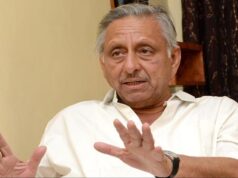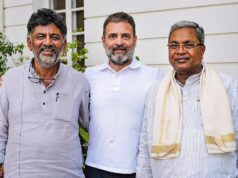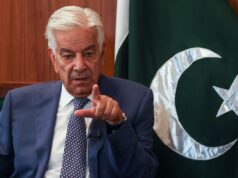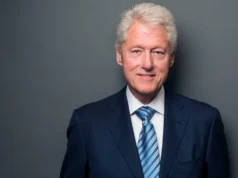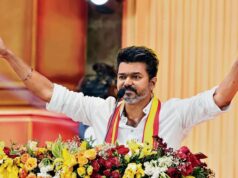The timing of the revelation that Keir Starmer has secured a free trade agreement with India could not be more favorable, even though it is not quite the most extensive and profound trade agreement the UK has ever undertaken.
Donald Trump, the president of the United States, made a suggestion over the weekend that he was about to announce his first trade agreement, which led to speculation that it would be with South Korea, Japan, or India.
Starmer has now outdone him.
A complicated dating game is being played by the largest economic blocs in the globe. Both the UK and the EU want to entice the US into a deal before it possibly makes a deal with China, which would force them into second-order talks.
Mujtaba Rahman, managing director of the Eurasia Group political consultancy, stated, “This is an encouraging development and a subtle reminder to Donald Trump that not all UK eggs are in the US basket.”
“Keir Starmer’s ability to reduce trade tensions with the EU, the UK’s largest trading partner, will be the true test. That will necessitate a more daring reset strategy than we have seen thus far,” he continued.
The UK’s Labour government called the agreement “the biggest and most economically significant bilateral trade deal the UK has done since leaving the EU,” giving the post-Brexit Conservative government the kind of boasting rights that Indian Prime Minister Narendra Modi had only imagined. Modi also called the agreement a “historic milestone.”
90% of British goods that currently face import duties in India would have their tariffs reduced as a result of the agreement. British whisky and gin levies will be cut from 150% to 75%, and by the tenth year of the agreement, they will drop to 40%. In a quota system, auto tariffs will be lowered from 100% to 10%.
Debra Crew, the CEO of the drinks business Diageo, expressed her excitement at the purchase, calling it a “huge achievement” that “will be transformational for Scotch and Scotland.”
Important marketplaces like those for aerospace, salmon, lamb, medical equipment, electrical machinery, soft drinks, chocolate, and biscuits will also be opened.
It’s possible that the UK administration prioritized haste above substance in order to close a deal in Trump’s world. “This deal does not address immigration, which has been the subject of protracted and stalled negotiations with India,” Rahman remarked. Additionally, legal services are not covered.
The agreement is anticipated to boost bilateral commerce between the UK and India, which is now valued at over £40 billion, by £25.5 billion annually. Although this represents a small portion of the nearly £315 billion annual trade between the US and the UK, it is seen as a decent place to start rather than the final result.
Though that only represents what was practically possible with India, this agreement is less ambitious than the previous administration had planned for. Although not economically revolutionary, this is a positive move, according to David Henig, head of the European Centre for International Political Economy in the UK.
According to him, there was “little point … as it wasn’t going to happen anyway” if the UK had attempted to wait for a better deal.
In India, economist Mihir Sharma said the small print, which was not yet public, was what mattered.
Demands for additional UK visa rights for Indian professionals and students have already caused trade talks with India to break down, as was the case in talks with Theresa May in 2016.
Given that India has made certain significant concessions that it has not yet offered to other nations, Sharma stated that this agreement “looks like a win for Starmer.” Only 1,800 additional visas are granted annually to chefs, musicians, and yogis. Additionally, for three years, Indian employees who are temporarily residing in the UK due to a company relocation would not be required to pay national insurance contributions.
The Conservative government of Rishi Sunak initiated negotiations with India in January 2022 with the ambitious goal of reaching a 32-chapter agreement. This is where the treaty got its start.
However, the bilateral investment treaty that is presently being negotiated is not mentioned, and legal and financial services are not included in what is essentially a tariff agreement.
TheCityUK’s chief executive, Miles Celic, praised the agreement but stated that he was still awaiting the “scope and details” and any indication of the “prospects for any future opportunities for new openings of trade in financial and related professional services, for which we have long advocated.”
